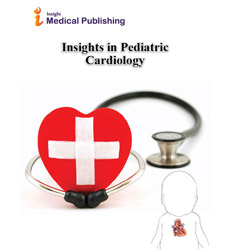Abstract
Mendelian Randomization analyses reveal a causal effect of thyroid function on cardiovascular risk factors and diseases
Despite progress in prevention and treatment over the past two decades, cardiovascular disorders remain a leading cause of mortality worldwide. Several observational studies suggest that even minor variation in thyroid function is associated with atherosclerotic cardiovascular disease, type 2 diabetes (T2D), hypertension, dyslipidaemia, and obesity. This raises the question as to whether common forms of mild thyroid dysfunction need treatment to prevent such complications. Through two-sample Mendelian randomization approaches, we investigated whether the relationship between thyroid function (interrogated through variation in reference range TSH and FT4, subclinical hypo- and hyperthyroidism, Hashimoto’s Disease (HD) and Graves’ disease) and cardiometabolic risk is causal, and possible mediation pathways underlying it. Using both published GWAS results and data from the UK Biobank, we show that one standard deviation (SD) increase in TSH levels causes a 5% decrease in the risk of stroke (OR=0.95, 95% CI= 0.91 to 0.99). Multivariable MR analyses indicated that this effect is mediated through atrial fibrillation (AF). While normal range thyroid function is not associated with Coronary Artery Disease (CAD), HD was associated with a 7% increased risk of CAD (OR=1.07, 95% CI= 1.01 to 1.13). The effect of HD on CAD risk appears to be mediated via body mass index (BMI). Looking at cardiovascular risk factors, a one SD increase in TSH levels was causally associated with: an increase of 0.05 SD units in total cholesterol serum levels (β=0.05, 95% CI= 0.02 to 0.08), a 0.03 SD unit increase in low-density lipoprotein (β=0.03, 95% CI= 0.003 to 0.02), and a 0.31 mmHg decrease in pulse pressure (PP) (β=-0.31, 95% CI= -0.54 to -0.08). In line with these findings, subclinical hyperthyroidism is causally associated with increased PP (β=0.15, 95% CI= 0.05 to 0.25). There is no evidence for a causal association between normal range FT4 levels and the tested outcomes. These results establish that minor variation in normal range thyroid function can be a novel modifiable risk factor for stroke through its effect on AF. Furthermore, variation in thyroid function can affect cardiovascular risk via its effects on cholesterol levels and blood pressure. These findings pave the way to consider future adjustment of thyroid function in managing patients’ risk of stroke.
Author(s):
Eirini Marouli
Abstract | PDF
Share this

Google scholar citation report
Citations : 5
Insights in Pediatric Cardiology received 5 citations as per google scholar report
Insights in Pediatric Cardiology peer review process verified at publons
Abstracted/Indexed in
- Google Scholar
- Secret Search Engine Labs
Open Access Journals
- Aquaculture & Veterinary Science
- Chemistry & Chemical Sciences
- Clinical Sciences
- Engineering
- General Science
- Genetics & Molecular Biology
- Health Care & Nursing
- Immunology & Microbiology
- Materials Science
- Mathematics & Physics
- Medical Sciences
- Neurology & Psychiatry
- Oncology & Cancer Science
- Pharmaceutical Sciences

